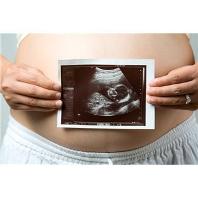- Calls to this hotline are currently being directed to Within Health, Fay or Eating Disorder Solutions
- Representatives are standing by 24/7 to help answer your questions
- All calls are confidential and HIPAA compliant
- There is no obligation or cost to call
- Eating Disorder Hope does not receive any commissions or fees dependent upon which provider you select
- Additional treatment providers are located on our directory or samhsa.gov
Royal Postpartum is Different than Average Woman’s

On July 23rd, England’s beloved couple, Prince William and Catherine, Duchess of Cambridge, welcomed their newborn baby boy to the world. Amid the joy and excitement for the arrival of this royal baby came the unavoidable flocking of worldwide media to scrutinize Kate Middleton’s postpartum body at her first public appearance one day after birth.
Social media comments outlandishly portrayed our culture’s skewed perception of beauty and body image, highlighting the shallow standards of our beauty ideals. A woman gracefully holding her newborn son resembled beauty more closely than the outcries of superficial body image that are continuously fed throughout our society and media. In reality, there is much that can be said about Kate’s noble appearance to the public the day after the birth of her son. She boldly exemplified strength and beauty that goes beyond what may be recognized by the media. While many celebrities typically wait to make their first public appearance until they have made the “baby bounce back”, Kate unabashedly presented herself and her son to the world, unwilling to fit into the impractical mold that is often expected of new mothers.
Indeed, real mothers have curves and postpartum bellies and tired eyes because that is the REALITY of childbirth. It can also be said that the majority of women do not entertain the luxuries that many celebrity mothers have, such as private trainers, chefs, stylists, etc. However, these portrayals of celebrity mothers are often taken at face value, creating a disillusioned reality for the average mother who may already be struggling with body issues post-baby.
Research studies have also examined and confirmed the impact of the media’s portrayal of the celebrity pregnancy experience on readers, especially those who are pregnant or postpartum. One study in particular found that a gap appears to exist between celebrities’ experiences of pregnancy and new motherhood and those of average women [1]. This imbalance is worrisome as it may easily lead to unrealistic expectations about postpartum for the pregnant or new mothers that are viewing this content.
This is yet another stereotype that needs to be challenged and broken, for the sake of taking unneeded pressure and stress off new mothers who already have enough demand from them as it is. Carrying and delivering a new baby into the world is not a task for the weary, one that is challenging for a woman – physically, mentally, and emotionally. As a society, we should be supporting women (and men) in their journey of parenthood, not upholding unrealistic standards over their heads in any shape or fashion.
Eating disorders fester on negativity and evolve from feelings of insecurity, animosity, and shame. If you are a new mother, may you be uplifted by the wonderment of what your body created and the new life that came from you, not subdued by the burdens our culture would wish to impose on you. There is freedom in knowing that you ARE enough and that you are beautiful, simply for who you are.
References:
[1]: http://www.ncbi.nlm.nih.gov/pmc/articles/PMC3246040/Jacquelyn Ekern founded Eating Disorder Hope in 2005, driven by a profound desire to help those struggling with anorexia, bulimia and binge-eating disorder. This passion resulted from her battle with, and recovery from, an eating disorder.

